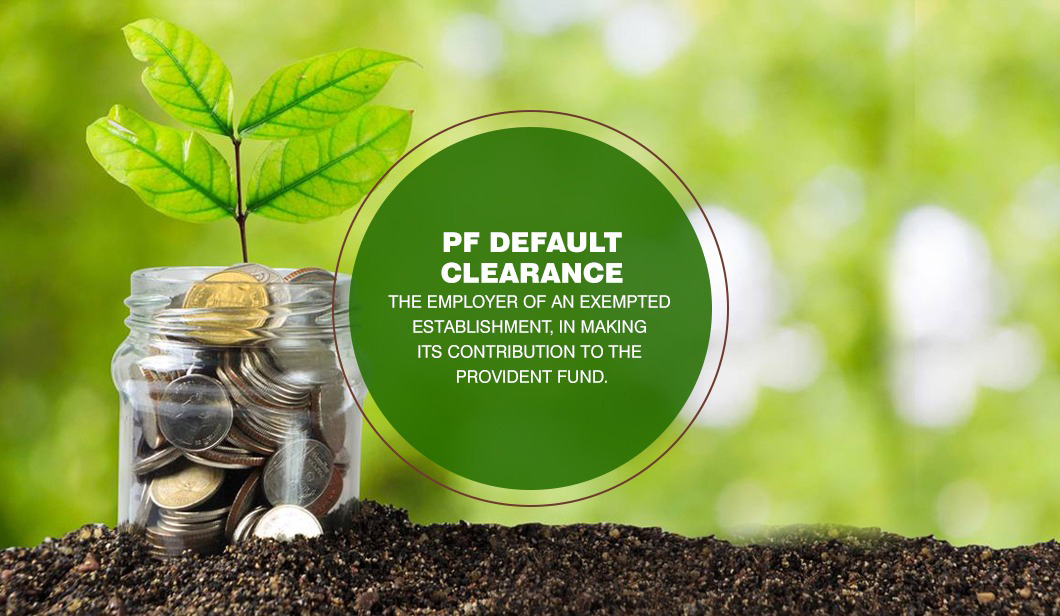PF Default Clearance - Overview
The Supreme Court has ruled that the proceedings for the recovery of damages are often initiated against the employer for his or her default in making payment of contribution to the provident fund despite the fact that they come under the 'exempted establishments' under the Employees' Provident Funds and Miscellaneous Provisions Act, 1952.
In a case of defaults by the employer of an exempted establishment, in making its contribution to the Provident Fund, Section 14B of the Employees' Provident Funds and Miscellaneous Provisions Act, 1952, will be applicable.
Track Your Status
The 'exempted establishments' means an establishment in respect of which an exemption has been granted under Section 17 of the Act from the operation of all or any of the provisions of any scheme or the insurance scheme, as the case may be, whether such exemption has been granted to the establishment per se or to any individual or class of persons employed therein.
PF Default Clearance Registration Package
Get Quote
- What we provide
- Documents required
- Free Consultancy
- Case handled by Professional Tax Consultant
- All Documents Realted to PF Defaults
Clearing Default Provident Fund
According to the new rule of the Supreme Court, recovery of the damages will be charged against the employees for their delay in the payment of the provident fund. The Supreme Court has initiated their steps against these employers who failed to pay their provident fund despite coming under the ‘exempted establishments’ under the Employees' Provident Funds and Miscellaneous Provisions Act, 1952.
A Supreme Court bench has commented that in case an employer fails to pay the provident fund on time by an exempted establishment, then Section 14B of the Employees' Provident Fund, and Miscellaneous Provisions Act, 1952 will be applicable for that employee.
The term ‘exempted establishment’ refers to the establishment which has been declared as an exemption under Section 17 of the Act. Under this section, a person or a class of people working under an establishment is granted a certain or all the provisions of Section 17. Under this Section, the person can escape from the payment of an insurance scheme or any other scheme.
The Supreme Court has nullified the order of the Calcutta High Court. According to the Supreme Court, the Calcutta High Court has violated the principles of social welfare legislation. The Supreme Court has commented, "Under the Directive Principles, the state has the obligation for securing just and humane conditions of work which includes a living wage and decent standard of life".
Need Consultancy? Ask Tax Seva Kendra Expert@ Rs. FREE
- Free Consultancy
- Online Documentation
- Anywhere In India





